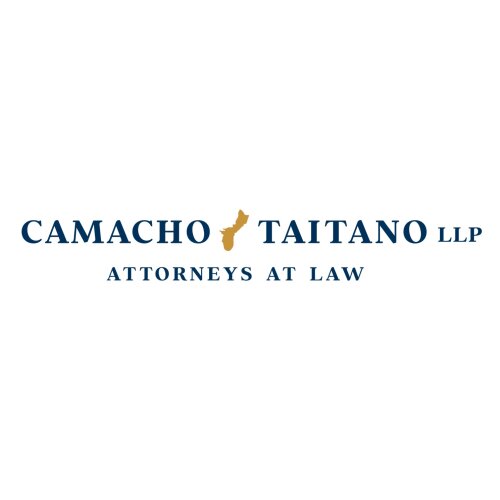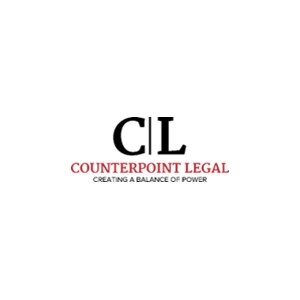Best Military Law Lawyers in Hagåtña
Share your needs with us, get contacted by law firms.
Free. Takes 2 min.
List of the best lawyers in Hagåtña, Guam
About Military Law in Hagåtña, Guam
Military law refers to the legal codes and statutes specific to military personnel and organizations. In Hagåtña, Guam, military law is governed by both federal military legal systems and local statutes that can affect service members stationed on the island. The Uniform Code of Military Justice (UCMJ) forms the foundation of military law, applicable to service members regardless of location. However, because Hagåtña, Guam is a U.S. territory with a significant military presence, local regulations and policies also play a crucial role in the legal landscape.
Why You May Need a Lawyer
There are several situations where individuals in Hagåtña, Guam, might seek legal assistance under military law:
- Facing court-martial proceedings or other disciplinary actions under the UCMJ.
- Dealing with administrative separations or discharge appeals.
- Encountering issues related to military benefits or entitlements, including VA claims.
- Pursuing matters of military family law, such as custody disputes involving military personnel.
- Addressing potential violations of military contracts or service agreements.
- Needing representation in matters of military criminal defense.
Local Laws Overview
While federal military law heavily influences the rules applicable to service members in Hagåtña, Guam, understanding local laws can be equally important. Key aspects to consider include:
- The intersection of federal military law and local Guamanian laws, especially regarding criminal offenses.
- The role of Joint Region Marianas in overseeing military bases and their operations on Guam.
- Specific regulations related to the environmental impact and land use by the military, enforced by local statutes.
- Cultural sensitivity and respect for local customs, which can impact both duty and off-duty behavior of military personnel.
Frequently Asked Questions
What is the Uniform Code of Military Justice (UCMJ)?
The UCMJ is a federal law, established by Congress, that governs the military justice system. It covers all aspects of military legal discipline, including crimes unique to military service.
Who is subject to Military Law in Guam?
Generally, military law applies to active duty service members, reservists on active duty, and, in certain circumstances, retired military personnel. Civilians and non-military personnel may be subject to specific regulations when on military bases.
How does military law interface with local Guam law?
Although military law primarily governs the activities of military personnel, situations may arise where both local and federal jurisdiction apply, especially regarding criminal offenses or family law matters.
Can a civilian lawyer represent me in a military court?
Yes, civilian attorneys can represent service members in military courts, provided they are qualified to practice before the court in question. It's beneficial to have a lawyer familiar with both military and local laws.
What should I do if I am facing a court-martial?
If facing a court-martial, you should immediately seek specialized legal counsel familiar with military law. Timely legal advice is crucial for navigating the complex military justice system.
What are the consequences of a dishonorable discharge?
A dishonorable discharge is a severe military penalty that can impact veterans' benefits, civilian employment opportunities, and social status. It indicates serious misconduct.
Where can I find legal representation on Guam?
Legal representation can be found via military legal assistance offices, private law firms specializing in military law, or through referral services that connect you with experienced military attorneys in Guam.
How do military family law matters work in Guam?
Military family law in Guam often involves unique challenges, such as deployment-related custody changes. Coordination between civilian and military legal systems can be necessary to resolve these issues.
Are military trials open to the public in Guam?
Generally, military trials (courts-martial) are open to the public, although some aspects may be closed for security or privacy reasons.
How does the appeals process work in military law?
Appeals from court-martial convictions go through various military courts, culminating in the U.S. Court of Appeals for the Armed Forces, with further appeals possible to the U.S. Supreme Court on limited matters.
Additional Resources
For those seeking further assistance or information regarding military law in Hagåtña, Guam, the following resources may be beneficial:
- Joint Region Marianas Legal Assistance Office
- Local veterans' affairs offices
- Military Law Task Force organizations
- Guam Bar Association for referral to qualified local attorneys
- Online portals offering guides to military law and veterans' benefits
Next Steps
If you need legal assistance in military law in Hagåtña, Guam, consider the following steps:
- Contact a legal assistance office on your base for initial guidance and referrals.
- Research and consult with legal professionals experienced in military law.
- Be aware of appointment availability, especially if seeking pro bono or reduced-cost services.
- Prepare any relevant documents or information before consultations to facilitate efficient legal advice.
- Stay informed of your rights and available resources through continuing education and support networks.
Lawzana helps you find the best lawyers and law firms in Hagåtña through a curated and pre-screened list of qualified legal professionals. Our platform offers rankings and detailed profiles of attorneys and law firms, allowing you to compare based on practice areas, including Military Law, experience, and client feedback.
Each profile includes a description of the firm's areas of practice, client reviews, team members and partners, year of establishment, spoken languages, office locations, contact information, social media presence, and any published articles or resources. Most firms on our platform speak English and are experienced in both local and international legal matters.
Get a quote from top-rated law firms in Hagåtña, Guam — quickly, securely, and without unnecessary hassle.
Disclaimer:
The information provided on this page is for general informational purposes only and does not constitute legal advice. While we strive to ensure the accuracy and relevance of the content, legal information may change over time, and interpretations of the law can vary. You should always consult with a qualified legal professional for advice specific to your situation.
We disclaim all liability for actions taken or not taken based on the content of this page. If you believe any information is incorrect or outdated, please contact us, and we will review and update it where appropriate.









